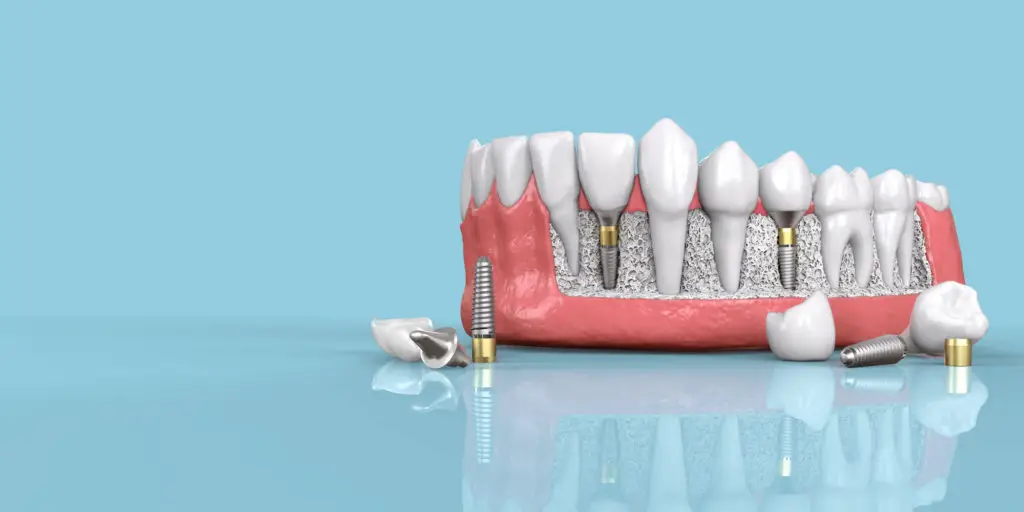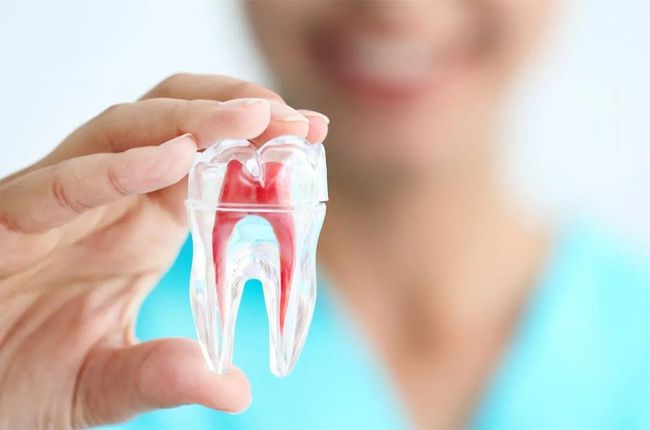Do You Need a Root Canal? 5 Telltale Symptoms
Are you experiencing tooth pain that just won't quit? Does the thought of biting into something hot or cold make you cringe in agony? If so, you might be dealing with a root canal infection. Now, before you start panicking and picturing all sorts of terrifying dental procedures, let's take a closer look at what exactly a root canal is and how to recognize the telltale symptoms. Trust us: understanding these signs could save you from unnecessary suffering and help restore your smile back to its former glory!
What is a Root Canal?
Imagine your tooth as a small fortress with layers of protective armor. At its core lies the dental pulp, which houses nerves, blood vessels, and connective tissues. Now, when this stronghold becomes compromised due to deep decay or trauma, bacteria can infiltrate and cause an infection. This is where a root canal comes in.
A root canal is a dental procedure that aims to save a severely infected or damaged tooth from extraction. During the procedure, your dentist will carefully remove the infected pulp from within the tooth's roots. Once cleaned and disinfected, they will fill and seal the roots with a special material to prevent further infection.
Contrary to popular belief, undergoing a root canal isn't as scary or painful as its reputation suggests! With advancements in modern dentistry and effective anesthesia techniques, most patients experience minimal discomfort during the procedure.
So if you find yourself facing an infected tooth that's causing you pain and distress – fear not! A root canal may just be what you need to salvage your natural smile and get rid of that pesky infection once and for all. Keep reading to discover some common symptoms that could indicate if you require this treatment.
Causes of Root Canal Infection
When it comes to root canal infections, there are a few common causes that can lead to this painful condition.
- One of the main culprits is dental decay or cavities. If tooth decay goes untreated, bacteria can penetrate deep into the tooth and infect the pulp, which houses the nerve endings.
- Another cause of root canal infection is trauma to the tooth. This could be due to accidents or injuries that result in cracks or fractures in the tooth structure. When the protective outer layer of enamel is compromised, bacteria can easily enter and cause an infection.
- Poor oral hygiene practices also play a role in root canal infections. Failing to brush and floss regularly allows plaque buildup on teeth, which eventually hardens into tartar. Tartar harbors harmful bacteria that can invade the inner layers of teeth and lead to infection.
- In some cases, previous dental procedures such as fillings or crowns can contribute to root canal infections if they become damaged or allow bacteria entry into the pulp.
- Certain systemic conditions like immune system disorders or diabetes may increase susceptibility to developing root canal infections.
It's important to note that while these are common causes, each case is unique, and individual factors should be assessed by a dental professional for accurate diagnosis and treatment options.
5 Common Symptoms of a Root Canal Infection
When it comes to dental health, early detection of problems is key. One such problem that often requires attention is a root canal infection. But how do you know if you need a root canal? There are several telltale symptoms to look out for.
1. Persistent pain: If you have a constant toothache or lingering discomfort that doesn't go away with over-the-counter pain relievers, it could be a sign of an infected root canal.
2. Sensitivity: Increased sensitivity to hot and cold temperatures can indicate an underlying issue in the tooth's nerve tissue. This heightened sensitivity may persist even after the stimulus has been removed.
3. Swelling and tenderness: Inflammation around the affected tooth or gum area can occur as a result of bacterial infection, leading to swelling, redness, and tenderness.
4. Abscess formation: A pocket of pus may form at the tip of the infected tooth's root, causing visible swelling on the gums or face.
5. Discoloration: The infected tooth might appear darker than its surrounding teeth due to changes in blood flow caused by inflammation and infection within the pulp chamber.
Remember that these symptoms alone do not guarantee a need for a root canal; only your dentist can make an accurate diagnosis based on thorough examination and X-rays.
It's essential not to ignore any signs of potential dental issues like those associated with root canal infections – seeking prompt treatment can help prevent further complications down the line!
Conclusion
If you've been experiencing persistent tooth pain, sensitivity to hot or cold temperatures, swelling, discoloration of the tooth, or a recurring pimple-like bump on your gum, it's crucial not to ignore these signs. These could be telltale symptoms of a root canal infection.
Remember, a root canal is a procedure that can save your natural tooth and alleviate your pain. It involves removing the infected pulp from inside the tooth and sealing it off to prevent further damage. If left untreated, an infected root canal can lead to more severe complications such as abscesses or even tooth loss.
So if you're experiencing any of these symptoms mentioned earlier in this article, don't hesitate to schedule an appointment with your dentist for an evaluation. They will be able to diagnose whether you need a root canal treatment and provide appropriate care.
Remember that early detection is key when it comes to preserving oral health. Regular dental check-ups are essential for identifying potential issues before they worsen. Maintaining good oral hygiene practices at home also plays a significant role in preventing infections and keeping your teeth healthy.
Taking care of your teeth should always be a priority. By being aware of the common symptoms associated with root canal infections and seeking prompt treatment when needed, you can protect yourself from unnecessary discomfort and ensure long-term oral well-being.
So don't delay – if something feels off with one or more of your teeth – reach out to our dentist today!
Office Hours
MON10:00 am - 6:30 pm
TUE8:00 am-12:00 pm, 1:00 pm-5:00 pm
WED10:00 am - 6:30 pm
THU8:00 am-12:00 pm, 1:00 pm-5:00 pm
FRI8:00 am - 2:00 pm
SAT - SUNClosed














